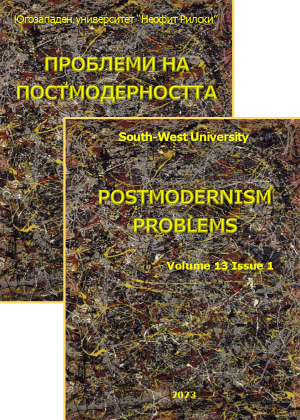Social Inclusion of the Elderly as an Indicator of the Quality of Life
Social Inclusion of the Elderly as an Indicator of the Quality of Life
Author(s): Albena Nakova-ManolovaSubject(s): Social Sciences, Sociology, Gerontology, Economic development, Globalization
Published by: ЮГОЗАПАДЕН УНИВЕРСИТЕТ »НЕОФИТ РИЛСКИ«
Keywords: quality of life; elderly people aged 55+; social inclusion; objective and subjective indicators of quality of life
Summary/Abstract: The article analyzes the quality of life of elderly people aged over 55 years in Bulgaria concerning their social inclusion in society; the analysis is based on a representative social survey of people aged 55+ entitled “Study on the Quality of Life of People Aged 55+ in Bulgaria”, conducted in 2022 by the Institute of Philosophy and Sociology at the Bulgarian Academy of Sciences. One thousand thirty respondents were surveyed. In the article, the quality of life of elderly people in terms of their social inclusion is studied through objective and subjective indicators. The survey results indisputably show that, by objective indicators of social inclusion of elderly people, the degree of social engagement of people aged 55+ in Bulgaria is not exceptionally high; such engagement consists, above all, of frequent social contact with close relatives, friends and neighbors, and assisting relatives, friends, and neighbors. The levels of social inclusion fall sharply regarding formalized social participation in volunteer activities for various organizations or even attendance at cultural events and interest clubs. However, we find that in terms of subjective assessments, the level of social engagement of elderly people corresponds fully to their needs and expectations for a whole and meaningful life, which thus makes satisfaction with the degree of social inclusion as a subjective indicator of the quality of social life, a factor that links the two levels of quality of life – individual and social. Thus, although objective indicators of social inclusion of elderly people in our country do not always indicate high levels of social engagement, subjective satisfaction with social inclusion points to a quality of life at the social level that fulfills the conditions for social cohesion and integration of elderly people in the life of society.
Journal: Проблеми на постмодерността
- Issue Year: 13/2023
- Issue No: 1
- Page Range: 8-25
- Page Count: 18
- Language: English

